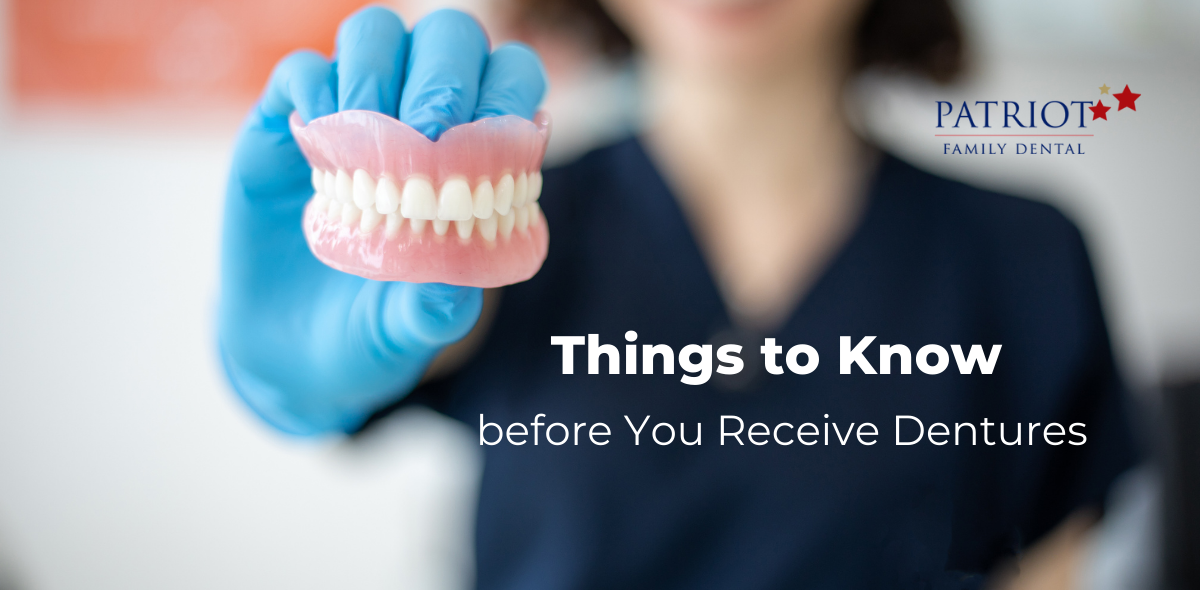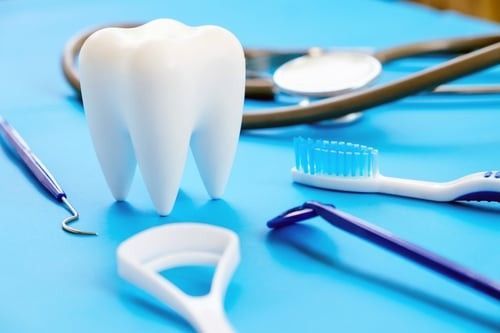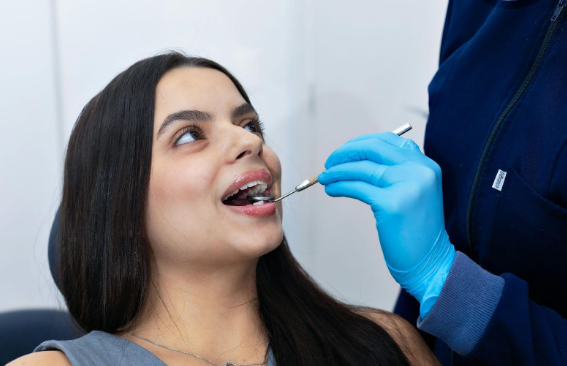Things to Know Before You Receive Dentures

If you are seriously considering getting dentures and are looking for answers to all your questions around it, you have come to the right place. Dentures are exceptionally useful for patients who have lost some or all their teeth. Our aim here is to provide you with all the information about dentures that will help you to decide if you need them or not.
The procedure is gaining popularity worldwide and you can solve most dental issues associated with tooth breakage and decay using dentures. However, it’s vital to note that they may not work in some cases. The best thing to do would be to consult a qualified dental expert to assess your dental situation. Read on to learn more about what dentures and what you should consider before getting them.
What are Dentures?
Dentures are artificial teeth and gums to replace missing or broken teeth in your mouth. Made using harmless materials, dentures are custom-made to fit inside your mouth and match your natural teeth. They are an especially useful solution for people who have lost their tooth to decay, gum disease, and accidents and injuries that caused teeth breakage.
What Are Dentures Made of?
Even though dentures were made from porcelain or plastic in the past, they are now made using hard resin and flexible polymer. Your dentist can match the shade of the dentures with the natural color of your teeth. These artificial teething solutions are 100% safe for humans but are not as sturdy as our natural teeth. So, they can get damaged if not correctly cared for. They typically last for around five years after which you should replace them.
How Do I Know When I Will Need Dentures?
Dentures are removable dental appliances and are extremely popular. In fact, over 40 million people use dentures in the US alone, as per the 2020 NHCS survey.
Your dentist may recommend dentures if you miss one or more teeth, especially in the front. Some of the other indicative signs include:
- Uneven gaps between your teeth, loose teeth, or uneven teeth that may require extraction.
- Frequent chronic toothaches could be a sign of advanced decay which may indicate the need for tooth extraction.
- Swollen, tender, red, bleeding gums is another sign to watch out for. Statistics show that 70% of adult tooth loss is because of gum diseases.
- Inability to eat certain foods due to cracked or missing teeth.
- Frequent indigestion is another sign to watch out for. The inability to properly chew your food due to broken or painful teeth may cause you to swallow large chunks of food. This may lead to frequent indigestion.
- You try to hide your smile due to missing or damaged teeth. It is often embarrassing for you to smile in public.
- If you have more missing teeth, it can cause your facial muscles to sag, thus altering the shape of your face.
Am I Too Young to Get Dentures?
Sadly, tooth loss can affect people of all ages. If you have missing teeth, your confidence levels may take a hit. Dentures can be the best solution here. Unlike traditional dentures, modern dentures look more natural and fit in well with your natural set of teeth; as a result, people will barely notice. While there is no specific age limit for getting dentures, they are typically not recommended for people who are younger than 30.
What Are the Different Types of Dentures?
Dentures could be used to replace a single tooth, a bunch of teeth, or a whole arch of teeth. Based on the requirement, dentures are of three broad types.
Partial Dentures: It is used to replace one tooth or a set of teeth. Partial dentures are attached to healthy teeth on either side by clasps.
Complete Dentures: These replace the full set of the upper jaw or lower jaw. Suction is used to attach them to the roof of the mouth or the gums.
Implant-Supported Dentures: These are dentures anchored by dental implants to the jawbone. This type works very well on the lower jaw, although they are used for both.
How Long Does It Take to Get Used to Dentures?
It typically takes between a couple of weeks to a couple of months to get used to dentures in your mouth. Newly fitted dentures may trigger more saliva production and may feel sore for some time. It may also feel loose even if they are fitted correctly. Most people get used to them in 30 days or so but it’s essential to give yourself adequate time for the adjustment. The term will also vary based on the intensity of denture work. People who had more comprehensive denture work performed on them may need more time.
How Should One Clean the Dentures?
All kinds of dentures need regular cleaning. Take your denture out of the mouth and run clean water all over it to wash off any food particles stuck on it or around it. Then gently brush it with a soft toothbrush using mild soap or denture cleaner. Do not use regular toothpaste on the denture. Rinse it well with clean water after brushing. Meanwhile, clean your gums and other natural teeth while your dentures are not in your mouth.
How Do I Preserve the Dentures When I Am Not Using Them?
Removed your dentures every night before sleeping to avoid dislodging them or damaging them. It will also give your gums some rest. Keep your removed dentures fully submerged in warm water (not hot water) or denture-soaking solution. This will help keep your dentures clean. Additionally, ensure that you store your container in a safe place to avoid spills or falls.
Before getting dentures, speak to your dentist to determine if it's the right solution for you. Our experts at Patriot Family Dental can help you make the assessment. Regardless of whether you want full or partial dentures, we have got you covered. Contact us today to learn more.











